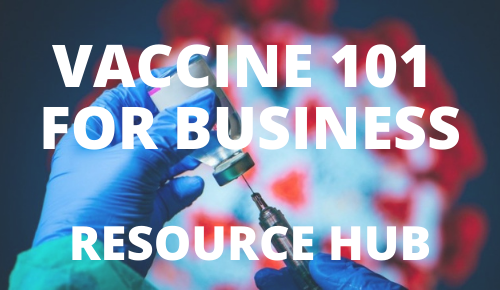On Monday, October 18, the Province of Manitoba announced a five-day COVID-19 test positivity rate of 3.3 per cent provincially and 1.4 per cent in Winnipeg, and the Chief Provincial Public Health Officer shared that it appears as though Manitoba may have plateaued the 4th wave.
Below are some important additional news updates this week related to COVID-19 of which business leaders should be aware:
- The Manitoba government announced on Oct.18 that it will enable pharmacists to perform rapid tests for people travelling outside of the province (rapid antigen tests and rapid molecular (non-PCR) tests). To request a test, individuals are required to present the pharmacist with travel documentation, such as a plane or train ticket or hotel booking. Rapid test requirements can vary by country, so individuals should confirm which type of test is required when making their travel plans. Manitoba travellers will be required to pay a fee for these tests, as travel health-related services are not an insured health benefit under the Canada Health Act. This is consistent with travellers paying for international travel vaccinations required by other countries. Fees will be set by each pharmacy providing the service. Read more…
- Manitoba expanded its recommendations on Oct. 18 to provide a third dose of the COVID-19 vaccine to include First Nation people living on reserve. This includes an estimated 7,200 people. The third dose should be given at least six months after the last vaccine. The Integrated Vaccine Operations Centre, co-led by First Nations and the federal government, is being reactivated to oversee the rollout and co-ordinate other supports that communities may need. Read more…
- Pfizer has asked Health Canada to approve the first COVID-19 vaccine (brand name Comirnaty) for children aged five to 11 years old. As soon as the regulator gives the green light, providers will be able to start offering the COVID-19 shot to kids, though new child-sized doses might need to be procured. The doses are about one-third the size given to adults and teens age 12 and up, and even though there is likely already enough doses in Canada to immunize children, Pfizer says the vaccine has been reformulated. Read more…
- The U.S. government announced last week that it’s set to reopen its borders to fully vaccinated travellers by air, land or passenger ferry starting Nov. 8. Air travellers will need to show proof of vaccination on arrival in the U.S. but will still need to show a pre-departure negative COVID-19 test taken within three days of boarding their flight. Non-essential travellers crossing at a land border will be required to show proof of vaccination or attest to their vaccination status upon request by a border agent — but unlike air travellers they will not face a requirement to show a negative COVID-19 test. Canada is still requiring all travellers entering the country to provide proof of a negative test, regardless of point of entry. Read more…
- After several days of uncertainty, the U.S. Centers for Disease Control confirmed late Friday that it will consider people with mixed doses fully vaccinated, as long as the vaccines are authorized by either the Food and Drug Administration or the World Heath Organization. That means Canadians who received any combination of the AstraZeneca, Pfizer-BioNTech or Moderna vaccines will be allowed to cross the border when it reopens on Nov. 8. More than 3.9 million Canadians outside Quebec have received doses of two different Health Canada-approved COVID-19 vaccines. Read more…
- The Government of Canada has released new information for employers regarding EI as it relates to mandatory vaccination policies. When an employee doesn’t report to work because they refuse to comply with your mandatory COVID-19 vaccination policy, use code E (quit) or code N (leave of absence). When you suspend or terminate an employee for not complying with your mandatory COVID-19 vaccination policy, use code M (dismissal). If you use these codes, Service Canada may contact you to determine:
- if you had adopted and clearly communicated to all employees a mandatory COVID-19 vaccination policy
- if employees were informed that failure to comply with the policy would result in loss of employment
- if the application of the policy to the employee was reasonable within the workplace context
- if there were any exemptions for refusing to comply with the policy
- The Government of Canada released information for individuals/workers regarding workplace vaccination policies and their impact on EI regular benefits. In most cases, if an individual loses or quits their job because they didn’t comply with an employer’s mandatory COVID-19 vaccination policy, they won’t be eligible for EI regular benefits. To determine eligibility, Service Canada may contact individuals to obtain information related to clarity of policies, exemptions, etc, and use the facts provided by both employees and employers to determine benefits entitlement.
- The Government of Canada also released updated ROE information for employers whose CEWS payments are ending but whose employees are not yet returning to work. Read more…




